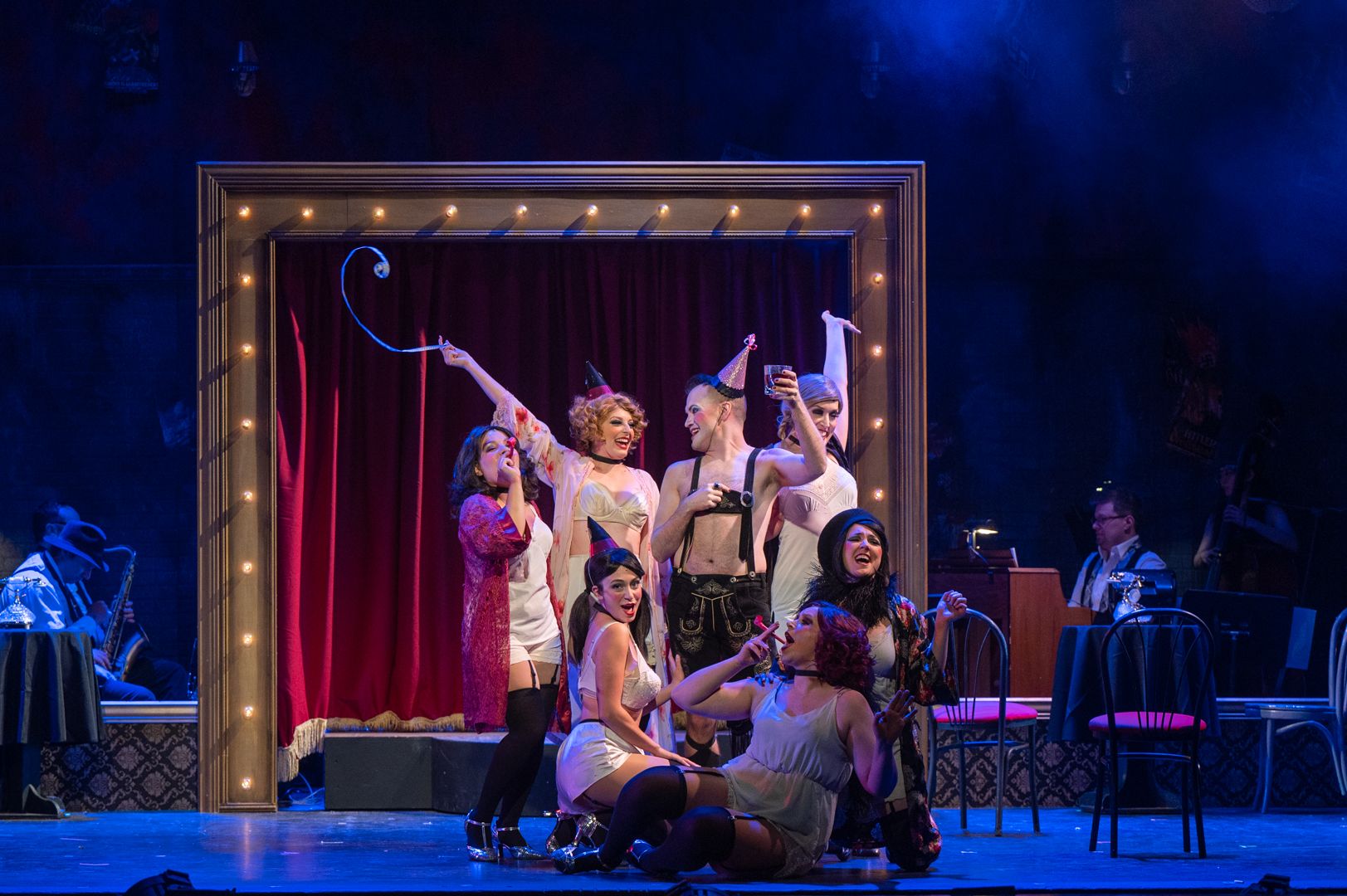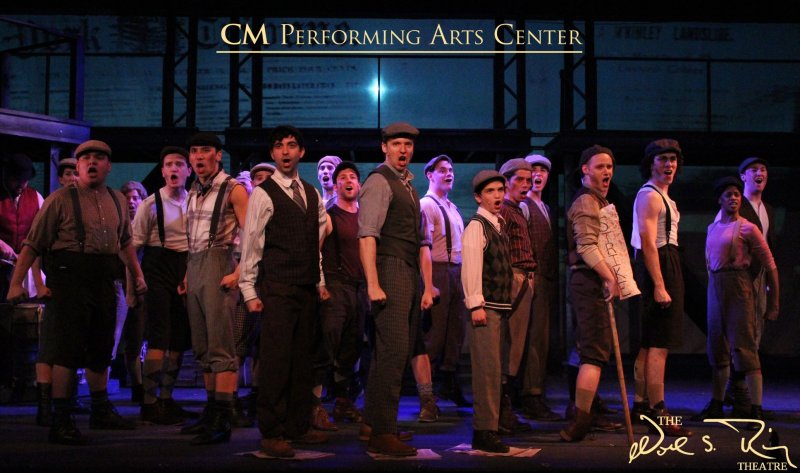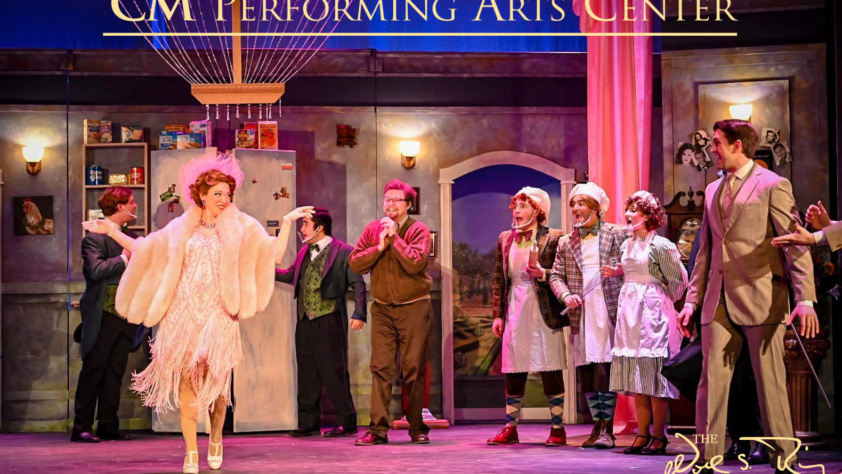Come to the ‘Cabaret!’
Opening night features charisma under the threat of fascism
The CM Performing Arts Center opened its second show for its 49th season on Saturday, Sept. 17 with “Cabaret.”
First-time director at CMPAC, Andrew J. Beck (who previously portrayed a rock ‘n’ roll redemptive Judas in “Jesus Christ Superstar” at the theater), delivered a “Cabaret” that captured the magic, tolerance, and promise of a bygone Berlin and the festering reality of the 1930s for Germany.
Unlike other iterations of “Cabaret,” Beck and scenic designer, John Mazzarella, did not opt for minimalist sets with black boxes, but instead delivered a seedy, grungy, but ironically glamorous background filled with details of decadence and decay.
Mazzarella, in a private tour to Suffolk County News, said it was a bit inspired from “Moulin Rouge!,” but quite cognizant of the fallen crescendo for the Kit Kat Club.
The backdrops were laden with decoupage Nazi propaganda posters and brick that that had seen brighter days. Even the curtains to the stage of the Kit Kat Club were muddied to suggest to the audience that this was a nightlife of decline.
The central part of the Emcee, played with playfulness and growing gravitas by Ronnie Green, showcased a voice that could command, whether it was bellowing or a whisper.
Green’s physicality and humor was apparent in the character who came off as charismatic, meddlesome, and ultimately prophetic.
Of course, “Cabaret’s” insidious Nazi takeover is one that the audience knows will be the fate of its progressive characters, but Beck’s direction allows all the Kit Kat girls and boys to revel in a never-ending party. The mood of the first half of the first act is so poignantly positive and celebratory, it is even more of a gut punch when the Nazi armband finally makes its way into the world of “Cabaret.”
Gary Tifeld, who played Herr Schultz, hung on to his almost bashful optimism of a Germany that could recover from the cancer of fascism all the way to the end of his arc, which tells us he is heading for the German border, giving us a glimmer of survival.
Tifeld’s gallantry is played to perfection, and even in the engagement party scene, where he has had too much of his prized orange Schnapps, his drunkenness is adorable and indicative of his good nature.
Balancing out Tifeld’s performance was Phyllis March’s Fraulein Schneider, the mature Juliet of Tifeld’s unwilling Romeo.
In her performance of “So What?,” March’s phrasing and ethereal dancing across the stage set up her character’s pragmatic but magnanimous nature, and even let out a little of a quiet romantic at heart.
Katie Ferretti and Andrew Murano as Sally Bowles and Clifford Bradshaw, respectively, were both frenetic and high energy. An audience member audibly gasped when Murano slapped Ferretti in a high-drama scene, but the ardent love with which Murano played Bradshaw came off so sincere that the violence almost felt warranted under the circumstances.
In the most subtle but most damning performance, Bryon Azoulay’s Ernst Ludwig captured the “good German” who condemned millions to hell. Azoulay’s ease and paternal/fraternal goodwill is so refreshing, that when his Nazi sympathies (heavily implied) are gauchely revealed, the audience can’t help but to finally allow the hatred for someone so charismatic and seemingly kind-hearted to flow through.
Without spoiler alerts, the final scene is a theatrical masterpiece of lighting and nuance, with the fate of a beloved character sealed, and is heart-wrenching to the point where the final applause for the cast must be accompanied with tears.
Read the Review Here: https://www.suffolkcountynews.net/stories/come-to-the-cabaret,91074?fbclid=IwAR05Rjg1ojrhNcEd9wCkTBik7yMH2L9v699Wyx1gnq_PEotq8HgA6a5-BYA





